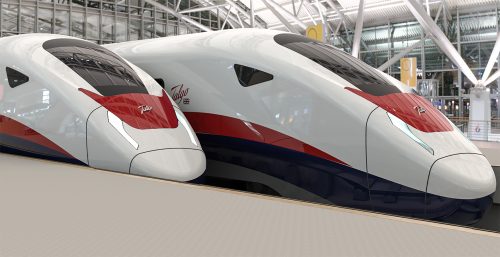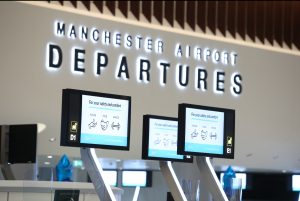Transport group unveils 30-year plan for North of England

Transport for the North has today (January 31) set out an ambitious vision for the future of the North’s economy, unveiling draft proposals for Northern infrastructure for the next 30 years.
The Strategic Transport Plan (STP) and the Investment Programme would rebalance decades of underinvestment and transform the lives of people in the North.
The STP outlines how up to £70bn of investment to 2050 could contribute towards an additional £100bn in economic growth for the North’s economy – creating 850,000 extra jobs.
The STP and Investment Programme mark the first time the North’s civic and business leaders have spoken with one voice on behalf of the North’s 15 million people, laying out a new pipeline of transport interventions.
The £70bn pipeline looks to better connect the whole of the North, with a short, medium and long-term plan for investment.
It aims to transform connectivity for people and businesses, and make it easier to move goods to, from and within the North.
The plan makes the case to increase spending on strategic transport by around £50 per person in the North each year to 2050.
It includes flagship programmes such as Northern Powerhouse Rail; upgraded and new major roads; enhancements to the existing rail network; and the continued roll out of smart ticketing.
The pan-Northern vision complements local and regional transport strategies and promotes new, low-carbon ways of travelling.
The next stage is for the plans to be considered by Transport for the North’s board, which will meet on Thursday, February 7, in Chester.
Subject to approval, the plans will be officially launched by Transport for the North on Monday, February 1, in Sheffield at Transport for the North’s Inaugural Conference.
From February 11, onwards, these proposals will become Transport for the North’s statutory advice to Government on what the ongoing priorities are for enhancing sustainable and inclusive connectivity across the North.
Chief executive Barry White said: “The Strategic Transport Plan is a hugely important document for the North.
“It is our vision for a prosperous pan-Northern future and outlines how investment in transport could transform our economy.
“Our Investment Programme outlines how an additional investment of just £50 per person in the North, per year, could play a part in unlocking a £100bn increase in economic activity and create 850,000 new jobs.
“For the people of the North, this will mean more choice over where they live and work, access to higher quality jobs and better connections to friends and families.
“It will mean our businesses have more opportunity to collaborate, trade and grow in a sustainable way.
“This final plan will be a statutory document written by the North, for the North, and will be our blueprint to deliver transformational change and leave a legacy for future generations.”
Bosses’ organisation the CBI, welcomed today’s proposals and Matthew Fell, CBI chief UK policy director, said: “Transport for the North’s vision to improve vital transport infrastructure over the next few decades is a key milestone for the North of England, and the UK as a whole.
“The plans for better connections between the towns, cities and international gateways that will assist the North’s long-term growth reflect business priorities across the country.
“High quality and reliable infrastructure keeps the economy moving, drives growth, and has a tremendous impact on productivity. These plans will also create hundreds of thousands of new jobs, bringing new opportunities to communities.”
He added: “Transport for the North’s vision shows what can be achieved when business and local political leaders work together in the best interests of their regions.”
Institution of Civil Engineers North West director, Emma Antrobus, said: “We welcome this plan which provides a clear, cohesive and effective strategy for using transport to support economic growth in the North West of England.
“We are impressed with how the North West has been catered for in the plan, particularly the progress on plans for high speed rail between Manchester and Liverpool to London.
“Connectivity is key to the prosperity of the North West’s economy but now we must tackle the chronic skills shortage to ensure these bold plans can be realised.
“In our report ‘Delivering a Northern Infrastructure Strategy’, we outlined the need for collaboration to address the transport needs of the North.
“It is essential that government and industry now work together to develop a clear, sustainable, long-term approach that takes account of local spatial planning, driven by population growth and changing employment patterns.”








